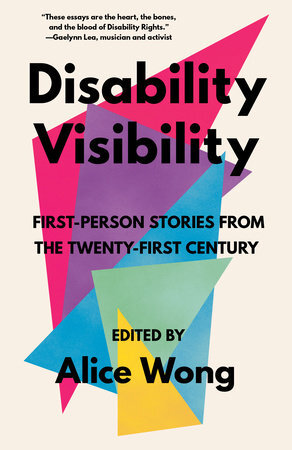Books for Adults: Part 2
Disclaimer: The Nora Project no longer uses the term "#OwnVoices" to describe books where the author's lived experience is reflected in their work through its characters, events, themes, and more. To learn more about this decision and background, please reference the statement released by We Need Diverse Books here.
The Nora Project continues to promote the voices of those with lived experience of disability. In part 1 of our posts on #OwnVoices books for adults, we highlighted three authors whose messages resonate with our team. In this installment, we are excited to focus on authors with a variety of messages for readers at any point in their disability studies journey.
Book cover of “Being Heumann” where a young woman sits on a chair with her legs crossed with a smirk on her face.
First up is Being Heumann: An Unrepentant Memoir of a Disability Rights Activist by Judy Heumann. In her memoir, Judy brings us into her world as a child, through her growing years, and into the tumultuous time of beginning advocacy for the disabled. Her fight for the right to access education, get a job, and secure civil rights for the disabled community gives the reader a bird’s eye view of a fight that should not be needed! She outlines her crucial role in enacting legislation such as the Rehabilitation Act of 1973 through heroic feats of activism. This is a must read that will broaden and deepen the reader’s base of information surrounding disability and civil rights. Only by deepening our exposure to these issues can we venture down the path toward being true allies/co-conspirators with those with disabilities. Reading and listening to their words is an excellent way to begin that journey.
Book cover of “Disability Disability” with tan background and 5 colorful triangles overlapping in the middle.
In Disability Visibility, edited by Alice Wong, the reader is treated to the voices of multiple individuals with disabilities across a spectrum of genres. Topics run the gamut from ableism to access issues, rights to allyship. For example, the piece entitled Why My Novel is Dedicated to My Disabled Friend Maddy by A. H. Reaume explores the experiences of two individuals with brain injuries and the challenges they face in an ableist world. The author speaks to ableism in the world of writing specifically, as well as the effects of privilege, stating that, “Disabled writers who have other intersections of oppression - like if they’re queer or transgender or racialized or poor - are more likely to have their voice silenced because of lack of capacity, the inability to access appropriate medical care, or financial precarity. We are less likely to read their works. Their brilliance might remain unshared.” He goes on to dedicate his as yet unpublished novel to his friend Maddy, also disabled, who helped him achieve what might otherwise have been impossible - the sharing of his work. “We need more disabled voices not just because disabled people are brilliant and talented and have so much to offer and say but also because disabled people face an incredible amount of dehumanizing ableism that shapes and destroys their lives. And one of the best ways to combat that is through stories.” Indeed, stories are vital - which is one of the reasons why The Nora Project has chosen that concept of storytelling as a cornerstone of its Storyteller Project! Each and every piece in Disability Visibility speaks as strongly as this highlighted piece to issues surrounding the need for visibility! This collection is well worth your time to explore.
Book cover for “Ghost Boy” of a close up out of focus image of a person’s face with eyes and mouth closed.
Ghost Boy by Martin Pistorius brings us into the world of alternate communication in a compelling autobiographical novel. We enter the world of Martin, a man who at a young age mysteriously lost all control of his body. We journey with him through his fight to regain the ability to communicate to those around him, to rejoin the world as it were, through the use of Augmentative and Alternative Communication (AAC). Martin shares the struggles he faces as he enters a world he does not remember, fighting to learn the skills he needs to become independent, to acquire a job, to develop relationships, all the activities that most people take for granted as the typical progression of life! While there are certainly challenging and painful topics which may make the reader uncomfortable, they are necessary to this story. Be ready to jettison your preconceived notions about those with significant disabilities. Be open to changing your mind, and push back on your ableist attitudes! This is surely a book that will help the reader along that path.
Remember, Team TNP is always learning too! Please continue to let us know what you think about the books we have chosen to highlight, and tag us on social media (Facebook, Twitter, or Instagram) with book recommendations for our ever-growing list of #OwnVoices stories to read and discuss.



